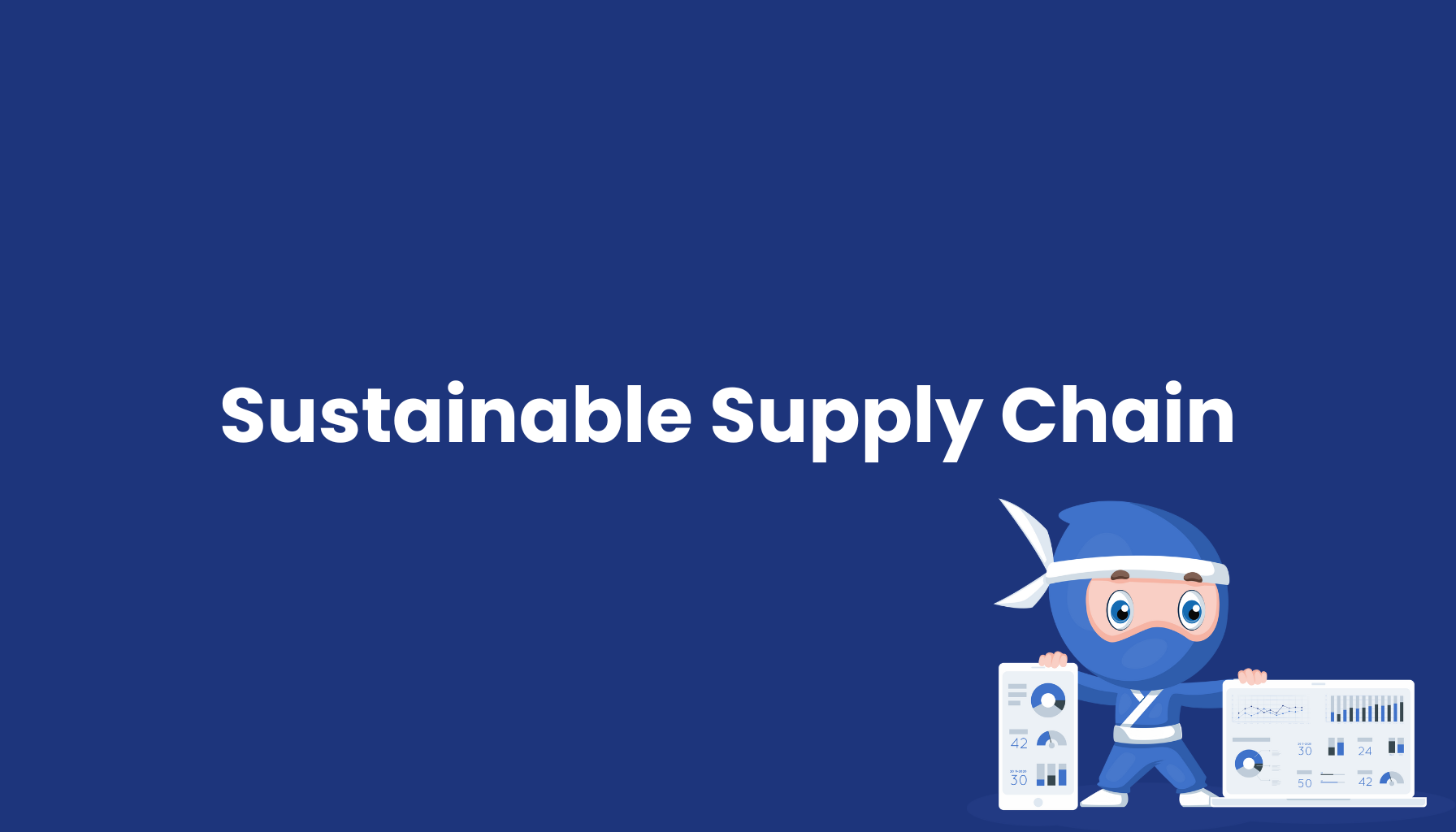Sustainable Supply Chain

Definition
A Sustainable Supply Chain is a supply chain that systematically integrates economic, environmental, and social sustainability into all business processes from raw material procurement through production to disposal. This holistic approach optimizes long-term value creation while considering environmental impacts, social responsibility, and economic profitability.
Triple Bottom Line Approach
Economic Sustainability: Long-term profitability through cost optimization, risk management, and efficiency enhancement. Total Cost of Ownership considers hidden environmental and social costs.
Environmental Sustainability: Minimization of carbon footprint, resource consumption, and environmental pollution. Circular economy principles promote reuse and waste reduction.
Social Sustainability: Fair working conditions, human rights, and community development throughout the entire supply chain. Ethical sourcing ensures responsible procurement.
Sustainability Challenges
Scope 3 Emissions: Indirect greenhouse gas emissions in supply chains are often 5-10x higher than direct emissions. Supply chain decarbonization requires comprehensive transparency.
Supply Chain Transparency: Complex, multi-tier supply chains make it difficult to track sustainability practices. Digital traceability creates end-to-end visibility.
Regulatory Compliance: Stricter ESG regulations such as Germany's Supply Chain Due Diligence Act or EU Taxonomy require systematic due diligence.
Business Benefits
- Risk Mitigation: Proactive management of environmental, social, and compliance risks in supply chains
- Cost Optimization: Resource efficiency and waste reduction reduce procurement and disposal costs
- Brand Value: Sustainable supply chains significantly strengthen brand reputation and customer trust
- Innovation Driver: Sustainability requirements foster innovative solutions and business models
- Access to Capital: ESG performance improves access to sustainable finance and reduces capital costs
Applications
Fashion and Textiles: Fast fashion industry implements sustainable sourcing for organic cotton, recycled materials, and fair working conditions. Circular fashion models promote textile recycling.
Food Industry: Sustainable agriculture, Rainforest Alliance certifications, and local sourcing reduce environmental impact. Food waste reduction along entire value chain.
Automotive Industry: Conflict-free minerals, CO2-neutral production, and battery recycling for electric vehicles. Supplier sustainability assessments evaluate supplier performance.
Electronics Industry: Responsible minerals sourcing, e-waste management, and green manufacturing reduce environmental impacts. Take-back programs promote circular economy.
Implementation Strategies
Supplier Assessment and Qualification: ESG criteria are integrated into supplier evaluation. Third-party audits validate sustainability practices on-site.
Collaborative Partnerships: Long-term partnerships with key suppliers enable joint sustainability investments. Supplier development programs improve performance.
Technology Integration: Blockchain-based traceability, IoT sensors for environmental monitoring, and AI-powered risk assessment create transparency.
Circular Economy Integration
Design for Circularity: Products are optimized for repair, refurbishment, and recycling. Life Cycle Assessment (LCA) evaluates environmental impacts holistically.
Reverse Logistics: Take-back programs and remanufacturing processes close material loops. Urban mining recovers raw materials from product returns.
Industrial Symbiosis: Waste from one company becomes input for others. Regional clusters promote local circular economy networks.
Measurement and Reporting
Key Performance Indicators: Carbon footprint, water footprint, waste-to-landfill rate, and social impact metrics quantify sustainability performance.
Sustainability Reporting: Integrated reports according to GRI standards, CDP disclosure, and SASB framework create stakeholder transparency.
Third-party Verification: EcoVadis, Sustainalytics, and other rating agencies independently evaluate supply chain sustainability.
Risk Management
ESG Risk Assessment: Systematic identification and evaluation of Environmental, Social, and Governance risks in supply chains.
Climate Risk Management: Physical and transition risks from climate change are integrated into supply chain planning. Scenario planning tests resilience.
Human Rights Due Diligence: UN Guiding Principles on Business and Human Rights define standards for responsible business practices.
Technological Enablers
Supply Chain Visibility Platforms: Digital twin technology and real-time tracking create end-to-end transparency. Satellite monitoring oversees environmental compliance.
AI and Machine Learning: Predictive analytics optimizes sustainable transport routes and proactively identifies sustainability risks.
Blockchain Technology: Immutable documentation of sustainability certificates and provenance tracking for ethical sourcing.
Stakeholder Engagement
Multi-Stakeholder Initiatives: Industry-wide cooperations like Sustainable Apparel Coalition or Responsible Business Alliance create common standards.
Consumer Education: Transparency initiatives inform consumers about sustainability impacts of their purchasing decisions.
NGO Partnerships: Collaboration with environmental and social organizations for credible sustainability initiatives.
Financing and Investment
Green Supply Chain Finance: Sustainable financing instruments like green bonds and sustainability-linked loans promote environmentally friendly supply chains.
Impact Investment: Private equity and venture capital invest specifically in sustainable supply chain innovations.
Future Trends
Net Zero Supply Chains: Science-based targets for complete supply chain decarbonization by 2050. Renewable energy procurement for all Tier-1 suppliers.
Regenerative Supply Chains: Approaches beyond sustainability that create positive environmental and social impacts. Nature-positive supply chains.
AI-optimized Sustainability: Machine learning automatically optimizes trade-offs between costs, CO2 emissions, and social impacts in real-time.
Sustainable Supply Chain evolves into a strategic imperative that advances environmental protection, social responsibility, and economic success equally through digitization, stakeholder collaboration, and innovative business models.


